Top alloy steel in China introduce,list main products and website if have
Alloy steel is widely used in various industries due to its superior strength, durability, and performance. In China, several top alloy steel manufacturers excel in producing high-quality alloy steel products. One of the top alloy steel manufacturers in China is Baosteel Group Corporation. Baosteel produces a wide range of alloy steel products, including alloy steel bars, plates, tubes, and wire rods. Their website is www.baosteel.com. Another leading alloy steel manufacturer in China is Ansteel Group Corporation. Ansteel offers a diverse range of alloy steel products, such as alloy steel pipes, fittings, and forgings. Their website is www.ansteelgroup.com.
In addition, Hesteel Group Company Limited is another prominent alloy steel manufacturer in China. Hesteel produces a variety of alloy steel products, including alloy steel coils, sheets, and billets. Their website is www.hesteel.com. Nanjing Iron and Steel Co., Ltd. is also a top alloy steel manufacturer in China, specializing in producing alloy steel plates, sheets, and strips. Their website is www.njsteel.com.
These top alloy steel manufacturers in China are known for their high-quality products, advanced technology, and strict quality control measures. They cater to various industries, including automotive, construction, energy, and aerospace, providing reliable and durable alloy steel products to meet the diverse needs of their customers.
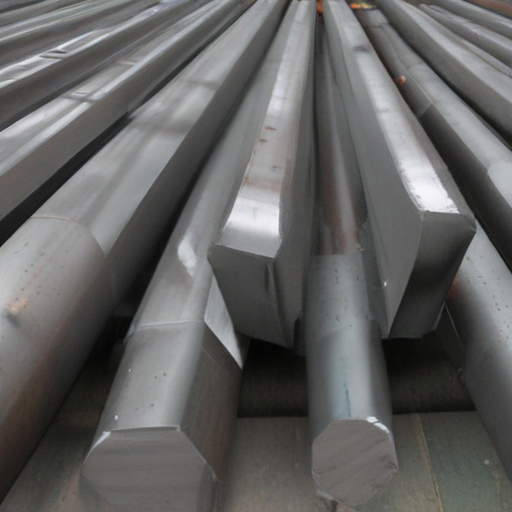
Types of alloy steel
Alloy steel is a type of steel that has elements added to improve its properties such as hardness, strength, and resistance to corrosion. There are various types of alloy steel, each with unique compositions and characteristics. Some common types of alloy steel include:
1. Low alloy steel: Low alloy steel contains a small amount of alloying elements such as nickel, chromium, manganese, or molybdenum. These elements help improve the strength and toughness of the steel without significantly increasing the cost. Low alloy steel is commonly used in structural applications, automotive components, and machinery.
2. High alloy steel: High alloy steel contains a higher percentage of alloying elements such as chromium, nickel, or molybdenum. These elements enhance the corrosion resistance, wear resistance, and heat resistance of the steel. High alloy steel is often used in applications where extreme conditions are present, such as aerospace components, chemical processing equipment, and tooling.
3. Stainless steel: Stainless steel is a type of alloy steel that contains a minimum of 10.5% chromium, which forms a protective oxide layer on the surface of the steel. This layer helps prevent corrosion and staining, making stainless steel ideal for applications where hygiene and cleanliness are important. Stainless steel is commonly used in kitchen appliances, medical equipment, and architectural structures.
4. Tool steel: Tool steel is a type of alloy steel that is designed to be used in cutting, shaping, or forming materials. Tool steel contains elements such as tungsten, molybdenum, or vanadium to improve the hardness and wear resistance of the steel. Tool steel is often used in the production of cutting tools, dies, and molds.
5. Spring steel: Spring steel is a type of alloy steel that is designed to have high yield strength and resilience. This allows spring steel to return to its original shape after being bent or twisted. Spring steel is commonly used in the manufacturing of springs, clips, and other components that require flexibility and strength.
Overall, alloy steel offers a wide range of properties and applications due to the versatility of its alloying elements. By selecting the appropriate type of alloy steel, manufacturers can optimize the performance and durability of their products.
Pros and Cons of Using alloy steel
Alloy steel is a type of steel that has been mixed with other elements to enhance its mechanical properties. This process can significantly improve the strength, hardness, and durability of the steel, making it suitable for a wide range of applications. Below are some of the pros and cons of using alloy steel:
Pros:
1. Strength and toughness: Alloy steel is known for its high strength and toughness, which makes it ideal for heavy-duty applications such as construction, engineering, and manufacturing.
2. Corrosion resistance: Many alloy steels are resistant to corrosion, which can prolong the lifespan of the material and reduce maintenance costs.
3. Wear resistance: Alloy steel is also highly resistant to wear and abrasion, making it suitable for applications where the material is subjected to constant friction or impact.
4. Versatility: Alloy steel can be easily customized to meet specific requirements, allowing for a wide range of applications in various industries.
5. Cost-effective: While alloy steel may have a higher initial cost compared to carbon steel, its enhanced properties often result in long-term cost savings due to reduced maintenance and replacement costs.
Cons:
1. Cost: As mentioned, alloy steel can be more expensive than carbon steel, which may not be feasible for budget-conscious projects.
2. Difficulty in welding: Some alloy steels can be difficult to weld, requiring specialized techniques and equipment, which can add to the overall cost and complexity of a project.
3. Brittle at high temperatures: Certain alloy steels can become brittle at high temperatures, which may limit their use in applications exposed to extreme heat.
4. Susceptible to hydrogen embrittlement: Some alloy steels are susceptible to hydrogen embrittlement, which can compromise their mechanical properties under certain conditions.
In conclusion, alloy steel offers a range of benefits in terms of strength, toughness, and durability, making it a versatile material for various industrial applications. However, its higher cost and potential drawbacks in welding and high-temperature environments should be carefully considered before selecting it for a project.
alloy steel Reference Specifications (varies for different product)
Alloy steel is a type of steel that is composed of a variety of metals in different proportions to enhance certain properties such as strength, hardness, and resistance to wear and corrosion. The reference specifications for alloy steel can vary depending on the specific product being produced. Some common reference specifications for alloy steel include ASTM A29/A29M, ASTM A322, ASTM A519, and ASTM A829.
ASTM A29/A29M covers “Standard Specification for General Requirements for Steel Bars, Carbon and Alloy, Hot-Wrought.” This specification outlines the requirements for chemical composition, mechanical properties, and permissible variations in dimensions for carbon and alloy steel bars.
ASTM A322 is the “Standard Specification for Steel Bars, Alloy, Standard Grades.” This specification covers hot-wrought alloy steel bars which are used for a variety of applications including manufacturing components for machinery, tools, and automotive parts.
ASTM A519 is the “Standard Specification for Seamless Carbon and Alloy Steel Mechanical Tubing.” This specification covers seamless carbon and alloy steel mechanical tubing used for mechanical and pressure applications.
ASTM A829 is the “Standard Specification for Alloy Structural Steel Plates.” This specification covers alloy structural steel plates intended primarily for welded construction where improved notch toughness is important.
In conclusion, alloy steel is a versatile material that can be customized to meet specific requirements by utilizing various reference specifications depending on the desired properties and applications of the final product.
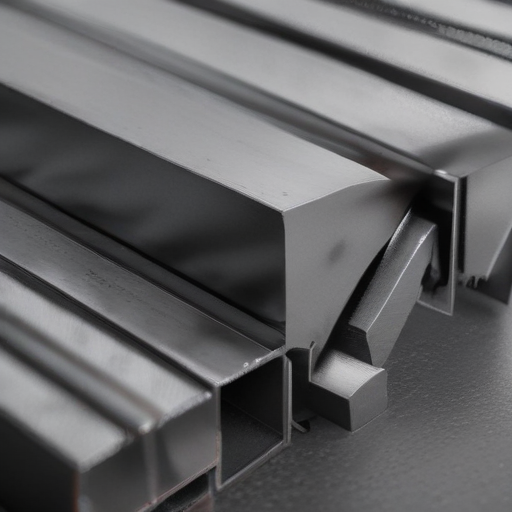
Applications of alloy steel
Alloy steel is a type of steel that contains other elements such as manganese, nickel, chromium, molybdenum, and vanadium in addition to carbon. This combination of elements gives alloy steel improved properties such as strength, toughness, wear resistance, and corrosion resistance compared to regular carbon steel.
One common application of alloy steel is in the manufacturing of automobiles. Alloy steel is used for various components in cars and trucks, such as gears, axle shafts, crankshafts, and steering components. The high strength and wear resistance of alloy steel help improve the durability and performance of these parts, leading to longer service life and reduced maintenance costs for vehicles.
Another important application of alloy steel is in the aerospace industry. Alloy steel is used in the construction of aircraft components such as landing gear, engine parts, and structural elements. The high strength-to-weight ratio and corrosion resistance of alloy steel make it an ideal material for aerospace applications where high performance and reliability are crucial.
Alloy steel is also commonly used in the construction industry for structural components, reinforcing bars, and fasteners. The improved strength and toughness of alloy steel make it suitable for supporting heavy loads and withstanding harsh environmental conditions in buildings and infrastructure.
In summary, alloy steel is a versatile material that finds applications in a wide range of industries due to its enhanced properties compared to regular carbon steel. Its strength, durability, and resistance to wear and corrosion make it a preferred choice for various applications where high performance and reliability are required.
Material of alloy steel
Alloy steel is a type of steel that is made by combining iron with other elements to enhance its properties. These additional elements can include nickel, chromium, manganese, molybdenum, vanadium, and silicon, among others. The addition of these elements changes the properties of the steel, making it stronger, tougher, and more resistant to wear and corrosion.
One common type of alloy steel is stainless steel, which contains chromium to make it resistant to rust and corrosion. Another popular type is tool steel, which contains tungsten and molybdenum to make it hard and wear-resistant. These specialized alloys are used in a wide range of applications, from automotive and aerospace parts to industrial machinery and tools.
One of the main benefits of using alloy steel is its strength and durability. Alloy steels are able to withstand high temperatures, heavy loads, and harsh environments, making them ideal for applications where other materials would fail. They also have excellent wear resistance, making them a cost-effective choice for parts that undergo a lot of friction and abrasion.
In conclusion, alloy steel is a versatile and durable material that is used in a wide range of industries. By carefully selecting the right combination of elements, manufacturers can create alloys with specific properties to meet the requirements of their applications. Whether it’s for automotive components, industrial machinery, or cutting tools, alloy steel is a reliable choice for high-performance materials.
Quality Testing Methods for alloy steel and how to control the quality
There are various quality testing methods that can be used for alloy steel to ensure its quality and performance. Some common methods include:
1. Chemical Composition Analysis: This involves analyzing the composition of elements in the alloy steel to ensure it meets the required specifications.
2. Mechanical Testing: This includes tests such as tensile strength, hardness, impact resistance, and fatigue testing to assess the mechanical properties of the alloy steel.
3. Non-Destructive Testing (NDT): NDT methods like ultrasonic testing, radiography, and magnetic particle inspection can be used to detect defects or discontinuities in the alloy steel without causing damage.
4. Microstructure Analysis: This involves examining the microstructure of the alloy steel under a microscope to assess its quality and identify any potential defects.
To control the quality of alloy steel, it is important to implement a quality management system that includes regular monitoring, inspection, and testing of the material. This can involve establishing quality control processes at each stage of production, conducting regular audits, and ensuring that all testing equipment is calibrated and maintained properly.
In addition, it is important to work with reputable suppliers and manufacturers who have a proven track record of producing high-quality alloy steel. Regular communication and collaboration with suppliers can also help to ensure that quality standards are met.
By implementing robust quality testing methods and controls, alloy steel manufacturers can ensure that their products meet the required specifications and deliver optimal performance in various applications.
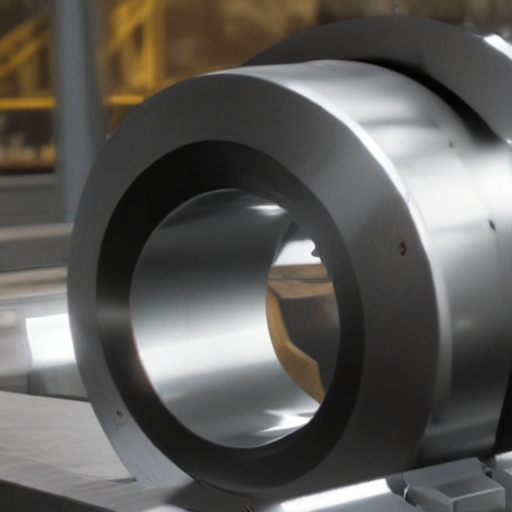
The Work Process and how to use alloy steel
Alloy steel is a type of steel that is composed of a combination of various elements in addition to iron and carbon. These elements typically include nickel, chromium, manganese, molybdenum, and vanadium, among others. Alloy steel is known for its superior strength, hardness, and resistance to corrosion, making it ideal for a wide range of industrial applications.
The work process for using alloy steel typically involves the following steps:
1. Selection of alloy steel: Choose the appropriate grade of alloy steel based on the specific requirements of the application, taking into account factors such as strength, hardness, and corrosion resistance.
2. Cutting and shaping: Alloy steel can be cut and shaped using various tools and techniques, such as sawing, milling, drilling, and grinding. It is important to use the proper cutting tools and techniques to avoid damaging the material.
3. Heat treatment: Alloy steel is often subjected to heat treatment processes, such as quenching and tempering, to improve its mechanical properties. This helps to achieve the desired hardness, strength, and toughness for the application.
4. Welding: Alloy steel can be welded using various welding methods, such as arc welding, gas welding, and resistance welding. It is important to follow the proper welding procedures and use the appropriate filler material to ensure a strong and durable weld.
5. Machining and finishing: Once the alloy steel has been cut, shaped, and welded, it may be machined to achieve the desired dimensional accuracy and surface finish. This may involve processes such as milling, turning, and grinding.
In conclusion, alloy steel is a versatile and durable material that is commonly used in a wide range of industrial applications. By following the proper work processes and techniques, alloy steel can be effectively used to create high-quality and reliable products.
alloy steel Importing questions including Cost,Supplier,Sample,Certification and Market
1. Cost: How much does it typically cost to import alloy steel, and are there any additional fees or duties to consider?
2. Supplier: What factors should be considered when selecting a supplier for alloy steel imports, such as reputation, quality, and reliability?
3. Sample: Is it possible to request a sample of the alloy steel before committing to a large order, and if so, how can this be arranged?
4. Certification: What certifications or quality standards should the alloy steel meet to ensure its suitability for use in various applications?
How to find and select check reliable alloy steel manufacturers in China
When looking for reliable alloy steel manufacturers in China, it is important to do thorough research to ensure you are working with a reputable and trustworthy company. Here are some steps to help you find and select a reliable alloy steel manufacturer:
1. Research online: Start by searching online for alloy steel manufacturers in China. Look for manufacturers with a strong online presence and positive reviews from previous customers.
2. Check certifications: Verify that the manufacturer has the necessary certifications, such as ISO 9001 or other quality management certifications. This ensures that they meet international standards for quality and production.
3. Request samples: Ask for samples of their alloy steel products to assess the quality of their materials. This will give you a better idea of their manufacturing capabilities and the level of quality they can provide.
4. Visit the factory: If possible, visit the manufacturer’s factory to see their facilities and production processes firsthand. This will give you insight into their manufacturing methods and quality control procedures.
5. Check their experience: Look for a manufacturer with a solid track record and extensive experience in producing alloy steel products. This will give you confidence in their ability to meet your requirements.
6. Get quotes: Compare quotes from different manufacturers to ensure you are getting competitive pricing. However, price should not be the only factor in your decision – quality and reliability are also important considerations.
By following these steps, you can find and select a reliable alloy steel manufacturer in China that meets your requirements and delivers high-quality products.
Background Research for alloy steel manufacturers Companies in China, use qcc.com archive.org importyeti.com
For the background research on alloy steel manufacturers in China, accessing websites such as qcc.com, archive.org, and importyeti.com can provide valuable information. These platforms can offer data on the history, reputation, production capacity, and customer reviews of various alloy steel manufacturers in China.
Qcc.com is a comprehensive business directory that lists information on a plethora of companies operating in China. By searching for alloy steel manufacturers on this website, one can find details such as the company’s size, location, key personnel, and contact information.
Archive.org is a digital archive that stores historical data of websites. By accessing this platform, one can track the history and evolution of alloy steel manufacturers in China. This can provide insights into the company’s growth trajectory, changes in product offerings, and overall market positioning.
Importyeti.com is a platform that provides import and export data on companies. By using this website, one can analyze the export volume and destinations of alloy steel manufacturers in China, gaining valuable insights into their international market reach and competitiveness.
By combining data from these platforms, one can create a comprehensive background research report on alloy steel manufacturers in China. This information can be crucial for making informed decisions on potential partnerships, collaborations, or investments with these companies.
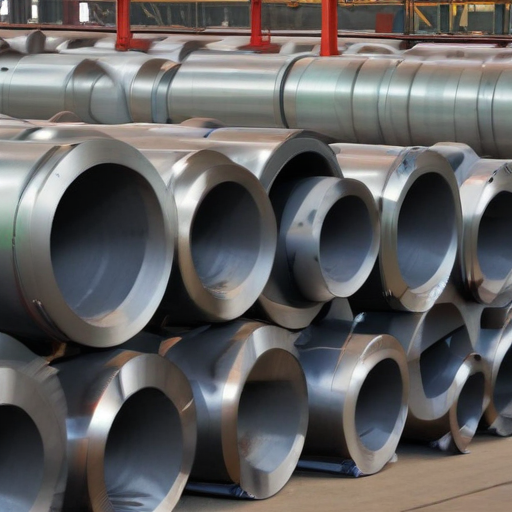
Price Cost Research for alloy steel manufacturers Companies in China, use temu.com and 1688.com
When researching prices and costs for alloy steel manufacturers in China, two popular websites to use are temu.com and 1688.com. These platforms offer a wide range of suppliers and products for businesses to choose from.
On temu.com, businesses can search for alloy steel manufacturers in China and compare prices for different types of alloy steel products. The platform provides detailed product information, company profiles, and customer reviews to help make informed purchasing decisions.
1688.com, on the other hand, is a popular Chinese wholesale website that connects businesses with manufacturers and suppliers in China. The platform offers competitive prices for alloy steel products, allowing businesses to negotiate directly with suppliers for the best deals.
By utilizing these websites, businesses can conduct thorough price and cost research for alloy steel manufacturers in China. This will help them find the most competitive prices and quality products to meet their manufacturing needs. It is important to compare prices, quality, and services offered by different suppliers to ensure a successful partnership.
Shipping Cost for alloy steel import from China
The shipping cost for importing alloy steel from China can vary significantly based on several factors such as the volume of the shipment, the weight of the alloy steel, the shipping method, and the distance between the origin and destination. Generally, shipping costs for alloy steel imports from China are determined based on the freight rate per kilogram or cubic meter.
For instance, if you are importing a small quantity of alloy steel using air freight, the cost can range from $5 to $10 per kilogram. This method is generally faster but more expensive compared to sea freight.
On the other hand, if you are importing a larger quantity of alloy steel using sea freight, the cost can range from $800 to $1200 per cubic meter. Sea freight is a more cost-effective option for bulk shipments, although it takes longer to transport compared to air freight.
Additionally, you may need to consider additional costs such as customs duties, port handling fees, insurance, and any other applicable taxes when calculating the total shipping cost for importing alloy steel from China.
To ensure that you are getting the best shipping rates, it is recommended to compare quotes from different freight forwarders and shipping companies. You can also consider working with a reputable logistics provider who can help you navigate the complexities of international shipping and ensure that your alloy steel imports arrive safely and on time.
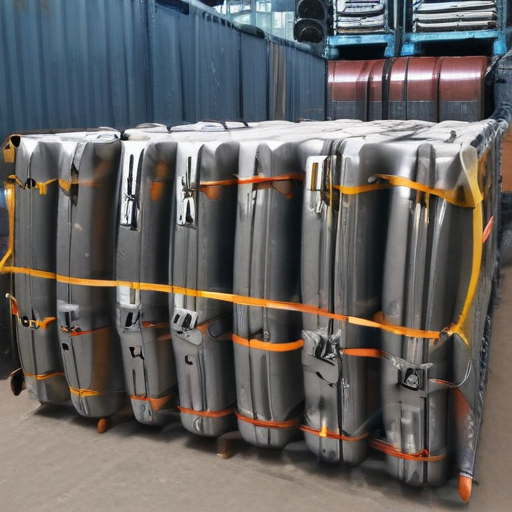
Compare China and Other alloy steel Markets: Products Quality and Price,Visible and Hidden Costs
China is a major player in the alloy steel market, offering a wide range of products at competitive prices. The quality of Chinese alloy steel products varies, with some manufacturers producing high-quality steel while others may offer lower quality products. Chinese alloy steel products tend to be less expensive compared to other markets, making them an attractive option for cost-conscious buyers.
Other markets, such as Europe and the United States, also offer a range of high-quality alloy steel products. These markets typically have stricter quality control measures in place, ensuring that the products meet industry standards. However, products from these markets are generally more expensive compared to Chinese alloy steel.
In terms of visible and hidden costs, Chinese alloy steel products may have lower upfront costs, but buyers should be aware of potential hidden costs such as shipping and import duties. Additionally, quality control may vary among manufacturers in China, leading to potential inconsistencies in product quality.
On the other hand, alloy steel products from other markets may have higher upfront costs, but buyers can expect a higher level of product quality and consistency. Hidden costs such as import duties may still apply, but the overall quality assurance measures in place may justify the higher price.
Ultimately, buyers need to consider their priorities when choosing between Chinese alloy steel products and products from other markets. While Chinese alloy steel may be more cost-effective, buyers should be aware of potential quality and hidden costs. Markets in Europe and the United States offer higher quality products, but at a higher price point. Ultimately, buyers should weigh the trade-offs between price, quality, and potential hidden costs when making a decision.
Custom Private Labeling and Branding Opportunities with Chinese alloy steel Manufacturers
There are great opportunities for custom private labeling and branding with Chinese alloy steel manufacturers. With their expertise in producing high-quality alloy steel products, you can create your own unique line of products that cater to your target market.
By partnering with Chinese alloy steel manufacturers, you can take advantage of their cost-effective production processes and access to a wide range of materials. This allows you to customize your products according to your specifications and requirements, ensuring that they meet your brand’s standards and quality.
In addition, Chinese manufacturers are known for their flexibility and willingness to work closely with their clients to achieve their branding goals. Whether you want to develop a new product line or enhance an existing one, they can help bring your vision to life while ensuring that your brand identity is maintained throughout the manufacturing process.
By leveraging the expertise and resources of Chinese alloy steel manufacturers, you can create a strong brand presence in the market and stand out from the competition. With custom private labeling and branding opportunities, you can create a unique product line that is tailored to your target audience and reflects your brand values.
Overall, partnering with Chinese alloy steel manufacturers for custom private labeling and branding opportunities allows you to capitalize on their industry knowledge and experience to create a successful and profitable product line. Take advantage of these opportunities to establish a strong brand presence in the market and drive sales growth for your business.
Tips for Procurement and Considerations when Purchasing alloy steel
When purchasing alloy steel, there are several factors to consider to ensure you are getting the best quality and value for your money. Here are some tips for procurement and considerations when purchasing alloy steel:
1. Know the specific alloy steel grade you require for your project. Different grades of alloy steel have varying levels of strength, hardness, corrosion resistance, and other properties. Make sure you understand the requirements of your project before making a purchase.
2. Look for reputable suppliers who have a track record of supplying high-quality alloy steel products. Check online reviews and ask for references to ensure you are dealing with a reliable supplier.
3. Consider the quantity of alloy steel you need. Buying in bulk may help you save on costs, but make sure you can store the material properly to prevent corrosion or damage.
4. Compare prices from multiple suppliers to ensure you are getting a competitive rate. However, be wary of prices that seem too good to be true, as they may indicate lower quality materials.
5. Consider the lead time for delivery. If you have a tight deadline for your project, make sure the supplier can deliver the alloy steel within the required timeframe.
6. Check the certifications and quality control measures of the supplier. Ensure they meet industry standards and have proper documentation for their products.
7. Consider additional services offered by the supplier, such as cutting, machining, or heat treatment. This can save you time and effort in processing the alloy steel for your project.
By taking these tips into consideration, you can ensure you are making a smart and informed decision when purchasing alloy steel for your project.
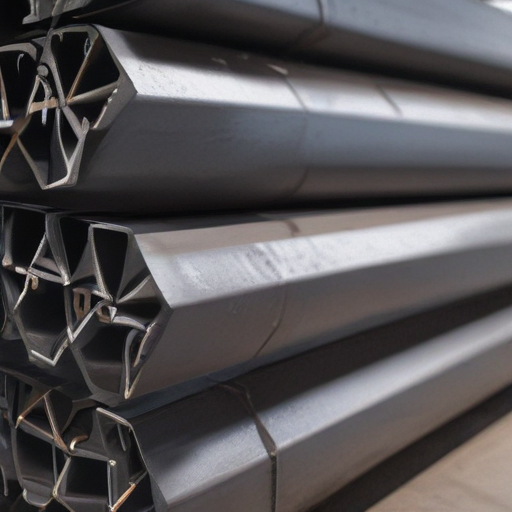
FAQs on Sourcing and Manufacturing alloy steel in China
1. Why should I consider sourcing alloy steel from China?
China is one of the largest producers of alloy steel in the world, offering a wide range of grades and types at competitive prices. Chinese manufacturers also have the capability to produce custom alloys according to your specifications.
2. How can I ensure the quality of alloy steel sourced from China?
It is essential to conduct thorough research and due diligence on potential suppliers in China. Look for manufacturers with ISO certification, quality control measures, and a good reputation in the industry. You can also request samples or visit the factory to inspect their manufacturing processes.
3. Are there any risks associated with sourcing alloy steel from China?
While China is a major producer of alloy steel, there are potential risks such as quality control issues, intellectual property theft, and language barriers. Working with a reputable sourcing agent or engaging in regular communication with the manufacturer can help mitigate these risks.
4. What is the process for manufacturing alloy steel in China?
Chinese manufacturers typically follow international standards and best practices for alloy steel production. The process involves melting raw materials, adding alloying elements, casting or forging the steel into desired shapes, heat treatment, and finishing processes such as machining or coating.
5. How can I ensure compliance with regulations when sourcing alloy steel from China?
It is important to understand the relevant regulations and standards for alloy steel in your country and communicate these requirements to the Chinese manufacturer. Conducting regular quality inspections, testing the material, and obtaining necessary certifications can help ensure compliance with regulations.
Why contact sourcifychina.com get free quota from reliable alloy steel suppliers?
SourcifyChina.com is a reputable platform that connects businesses with reliable suppliers in China, including alloy steel suppliers. By contacting SourcifyChina.com, businesses can access a network of trusted suppliers who have been vetted for quality and reliability.
By getting a free quota from reliable alloy steel suppliers through SourcifyChina.com, businesses can easily compare different suppliers and their pricing, quality, and lead times. This saves time and effort that would otherwise be spent researching and vetting potential suppliers individually.
In addition, working with reliable alloy steel suppliers ensures that businesses receive high-quality products that meet their specifications. This can help prevent delays, quality issues, and other concerns that can arise when working with unreliable suppliers.
SourcifyChina.com also provides support and assistance throughout the sourcing process, helping businesses navigate language barriers, cultural differences, and other challenges that can arise when sourcing products from China.
Overall, contacting SourcifyChina.com to get a free quota from reliable alloy steel suppliers can streamline the sourcing process, save time and effort, and ensure that businesses receive high-quality products from trusted suppliers.
